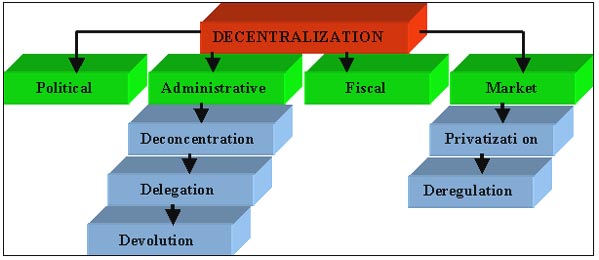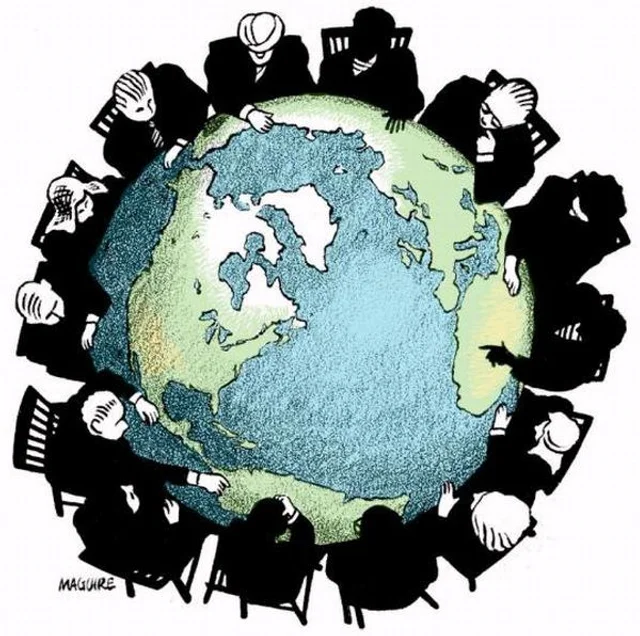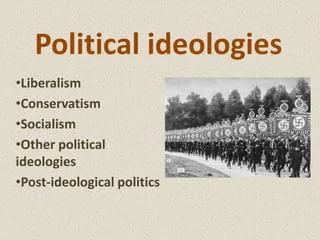Achieving Optimal Governance Through Political Decentralization

The Impact of Political Decentralization on Governance and Public Service Delivery
Political decentralization, often referred to as devolution or decentralization of power, is a fundamental concept in the realm of governance and public administration. It entails the transfer of political, administrative, and fiscal authority from central governments to subnational entities, such as states, provinces, or municipalities. The rationale behind political decentralization is to empower local governments, enhance democratic participation, and improve the delivery of public services. In this comprehensive exploration, we will evaluate the impact of political decentralization on governance and public service delivery.
Understanding Political Decentralization
Political decentralization is a multi-dimensional concept that can take various forms depending on the context and goals of a given country. Key aspects of decentralization include:
Transfer of Authority: Political decentralization involves delegating decision-making authority from the central government to subnational entities. This can range from significant autonomy to partial authority, depending on the specific policies and laws governing decentralization.
Fiscal Decentralization: This aspect deals with the allocation of financial resources to subnational entities. It includes revenue-sharing mechanisms, local taxation, and budgetary autonomy.
Administrative Decentralization: Administrative functions, such as planning, service delivery, and personnel management, can be transferred to local governments or agencies to enhance efficiency and responsiveness.
Electoral Decentralization: Political decentralization often involves the election of local representatives or officials, allowing citizens to have a more direct role in local governance.
Now, let's delve into the evaluation of the impact of political decentralization on governance and public service delivery.
Impact on Governance
Enhanced Local Accountability: Political decentralization promotes greater accountability at the local level. Local officials are more directly accountable to their constituents, as they are often elected by the local population. This accountability can lead to more responsive and responsible governance.
Strengthened Democracy: Decentralization can contribute to the deepening of democracy by giving citizens more opportunities to participate in decision-making processes. It allows for the diversification of political power, reducing the risk of authoritarianism.
Reduced Bureaucratic Red Tape: Local governments are often more agile and responsive than large, centralized bureaucracies. Decentralization can streamline administrative processes, reducing bureaucratic red tape and improving service delivery.
Efficient Resource Allocation: Subnational governments may have a better understanding of local needs and priorities, leading to more efficient allocation of resources. This can result in targeted investments that have a more significant impact on local communities.
Conflict Resolution: Decentralization can help mitigate regional conflicts by giving regions more autonomy to address their unique challenges and concerns through peaceful negotiations and local governance.
Impact on Public Service Delivery
Improved Service Quality: Decentralization can lead to improved public service delivery by allowing local governments to tailor services to the specific needs of their communities. Local authorities are often more attuned to local conditions and can make decisions that enhance service quality.
Increased Access to Services: Devolving power to local governments can expand access to essential services, particularly in rural or underserved areas. Local authorities are more likely to invest in infrastructure and services that benefit their communities directly.
Innovation and Experimentation: Decentralization encourages experimentation and innovation in service delivery. Local governments have the flexibility to test new approaches and adapt policies to local circumstances, potentially leading to best practices that can be scaled up.
Citizen Engagement: Political decentralization can enhance citizen engagement in the design and delivery of public services. Local governments are more accessible to citizens, allowing for more meaningful participation in decision-making processes.
Efficient Resource Management: Decentralization can lead to more efficient resource management, as local governments are incentivized to use resources judiciously to meet their specific goals. This can result in cost savings and better value for taxpayers.
Challenges and Considerations
While political decentralization holds immense promise, it is not without its challenges and considerations:
Capacity Building: Local governments may lack the expertise and resources necessary to effectively manage their new responsibilities. Therefore, capacity-building efforts are crucial to ensure they can govern efficiently and deliver quality services.
Inequity and Disparities: Decentralization can exacerbate inequalities if subnational governments have unequal access to resources or if they lack the capacity to manage them effectively. Ensuring a fair distribution of resources is essential to address these disparities.
Coordination Challenges: When multiple local governments are involved, there can be coordination challenges in delivering services that span across administrative boundaries. Effective intergovernmental coordination mechanisms are needed to address these issues.
Corruption and Mismanagement: Decentralization can sometimes lead to corruption and mismanagement at the local level. Strong oversight mechanisms and anti-corruption measures are necessary to prevent and address these issues.
Fiscal Sustainability: Ensuring that local governments have a stable and sustainable source of revenue is critical. Overreliance on central transfers can make local governments vulnerable to fluctuations in central government funding.
Political Manipulation: In some cases, political decentralization can be used for partisan purposes, leading to political manipulation or the concentration of power in certain regions or municipalities. Safeguards against such manipulation are essential.
Legal Framework: Establishing a clear and well-defined legal framework for decentralization is essential. Ambiguities or conflicts in laws can lead to governance challenges and disputes.
Public Awareness and Participation: Effective decentralization requires an informed and engaged citizenry. Efforts to raise public awareness and encourage citizen participation in local governance are vital.
Examples of Decentralization
Several countries have embraced political decentralization, each with its unique approach and outcomes:
India: India adopted a system of political decentralization through the Panchayati Raj institutions, empowering local village councils and municipal bodies to manage local affairs. This has significantly enhanced local governance and service delivery.
Brazil: Brazil implemented decentralization reforms, which included the creation of municipal governments with increased autonomy. This has led to improved service delivery in areas like healthcare and education.
Germany: Germany has a strong tradition of federalism, with significant powers devolved to its states (L?nder). This has allowed for regional policy variations and innovation, contributing to efficient public service delivery.
South Africa: South Africa's post-apartheid government introduced decentralization to address historical disparities. This has led to increased access to basic services, especially in previously marginalized areas.
Political decentralization is a complex, dynamic, and context-dependent process that can profoundly impact governance and public service delivery. While it offers opportunities for enhanced accountability, improved service quality, and democratic participation, it also presents challenges that require careful planning, oversight, and continuous evaluation. Effective decentralization requires a balance between autonomy and accountability, with a focus on building the capacity of local governments to govern effectively. As countries around the world continue to explore decentralization as a means to achieve better governance and public service delivery, learning from both successes and challenges will be essential to refine and adapt decentralization policies for the benefit of their citizens.
What's Your Reaction?
















